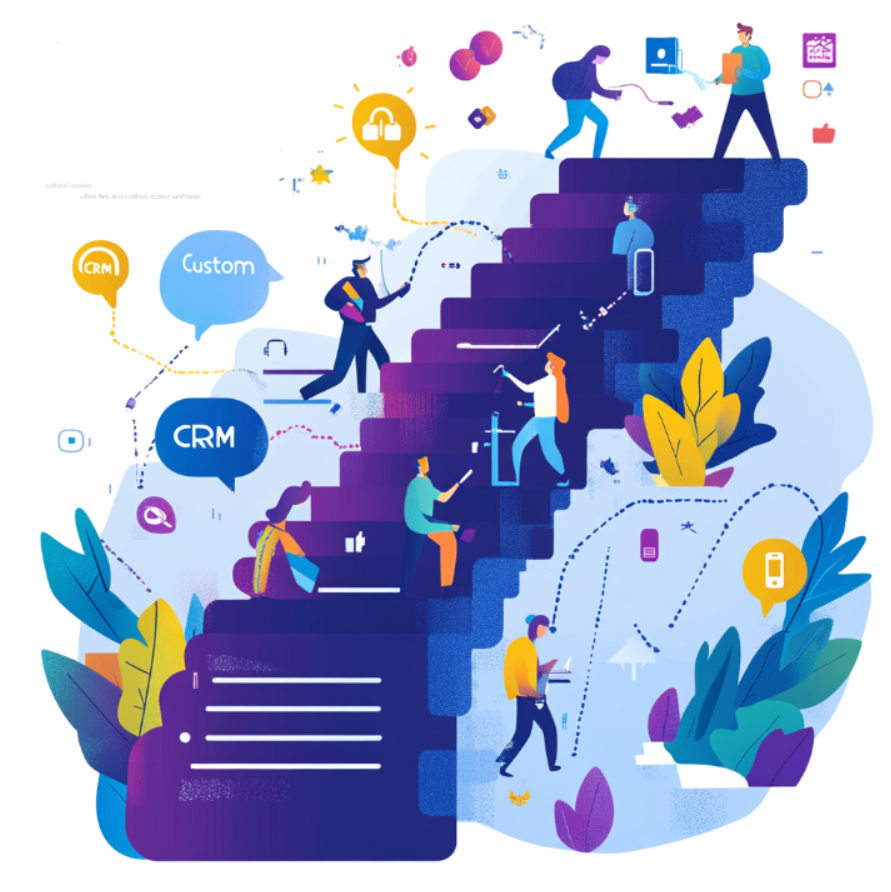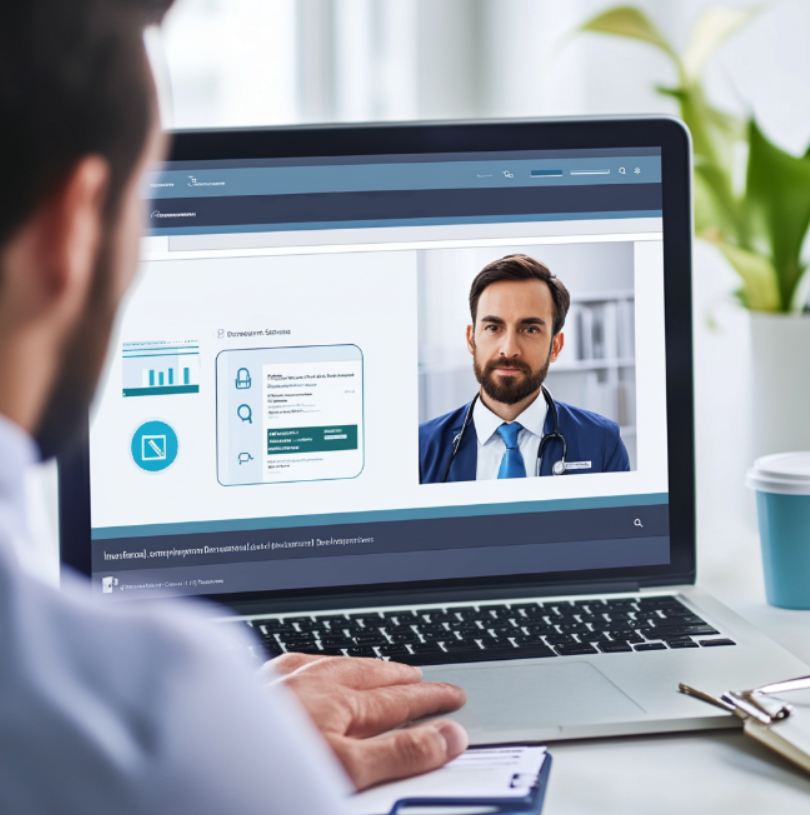Efficient patient care has become a crucial component of modern healthcare systems. Partnering with an app development company allows healthcare organizations to create bespoke CRM solutions that meet their specific needs. With the rapid advancements in technology, healthcare organizations are leveraging custom CRM (Customer Relationship Management) solutions to enhance patient satisfaction, streamline operations, and improve overall outcomes. This article explores the transformative impact of custom CRM development on patient care, structured into five comprehensive chapters. Each chapter includes a table summarizing key insights
Understanding the Need for Custom CRM in Healthcare
 Healthcare organizations face unique challenges that demand tailored solutions. Custom CRM systems cater to the specific requirements of healthcare providers, addressing the following critical needs:
Healthcare organizations face unique challenges that demand tailored solutions. Custom CRM systems cater to the specific requirements of healthcare providers, addressing the following critical needs:
1. Centralized Patient Data Management: Eliminating data silos by integrating patient information across departments. This ensures that all stakeholders have access to up-to-date and accurate information, leading to better coordination of care.
2. Enhanced Communication: Improving interactions between healthcare providers and patients. Through automated reminders, real-time updates, and secure messaging systems, CRMs enable more transparent and effective communication.
3. Regulatory Compliance: Ensuring adherence to standards like HIPAA and GDPR. By automating compliance-related processes and incorporating robust data protection measures, custom CRMs help organizations avoid penalties and maintain trust.
These needs reflect the broader push toward patient-centric care, where technology acts as a bridge to close operational gaps and enhance outcomes.
| Key Aspect | Benefits | Challenges Addressed |
| Centralized Data |
|
|
| Enhanced Communication |
|
|
| Regulatory Compliance |
|
|
Core Features of a Custom Healthcare CRM
 A robust healthcare CRM is built with features designed to support both administrative and clinical functions. These features include:
A robust healthcare CRM is built with features designed to support both administrative and clinical functions. These features include:
1.Patient Appointment Management: Simplifying the scheduling process. Custom CRMs enable patients to book appointments online, view available slots, and reschedule with ease. For providers, it offers a unified calendar to manage their schedules effectively.
2.Automated Notifications: Reducing missed appointments with reminders. Notifications can be sent via SMS, email, or app alerts, ensuring patients are informed well in advance.
3. Data Analytics: Providing insights for better decision-making. By analyzing patient trends, demographic data, and treatment outcomes, CRMs empower healthcare providers to make data-driven decisions and identify areas for improvement.
These features contribute to a seamless and integrated healthcare delivery system, promoting efficiency and enhancing patient satisfaction.
| Feature | Purpose | Impact on Operations |
| Appointment Management |
|
|
| Automated Notifications |
|
|
| Data Analytics |
|
|
Benefits of Custom CRM for Patients and Providers
 Custom CRM systems benefit both patients and healthcare providers by improving efficiency and satisfaction levels. Key benefits include:
Custom CRM systems benefit both patients and healthcare providers by improving efficiency and satisfaction levels. Key benefits include:
1. Personalized Patient Care: Offering tailored treatment plans and proactive engagement. CRMs enable providers to track patient history, preferences, and ongoing treatments, ensuring a personalized approach.
2. Streamlined Workflows: Reducing administrative burdens for healthcare staff. Automation of routine tasks such as billing, scheduling, and follow-ups frees up time for staff to focus on core responsibilities.
3. Improved Patient Outcomes: Enhancing the quality of care through timely interventions. Predictive analytics and real-time monitoring tools integrated into CRMs help detect potential issues early, allowing for prompt action.
By addressing these aspects, custom CRMs foster a more collaborative and efficient healthcare environment.
| Stakeholder | Benefit | Long-term Advantage |
| Patients |
|
|
| Providers |
|
|
| Administrators |
|
|
Steps to Develop a Custom Healthcare CRM
 Developing a custom CRM requires a strategic approach to ensure it aligns with the organization’s goals. The process involves:
Developing a custom CRM requires a strategic approach to ensure it aligns with the organization’s goals. The process involves:
1. Requirement Analysis: Identifying specific needs and objectives. This involves collaborating with key stakeholders, including healthcare providers, IT teams, and administrators, to define clear goals and expectations.
2. System Design: Creating user-friendly interfaces and functionalities. The design phase emphasizes simplicity and usability, ensuring that both medical staff and patients can navigate the system with ease.
3. Implementation and Testing: Ensuring the system operates seamlessly. Rigorous testing phases are critical to identifying and addressing potential issues before full-scale deployment.
These steps are iterative, requiring constant feedback and adaptation to meet evolving needs and technologies. Partnering with a provider of digital product design services can significantly streamline this process.
| Development Phase |
|
|
| Requirement Analysis |
|
|
| System Design |
|
|
| Implementation Testing |
|
|
Future Trends in Healthcare CRM Development
 As technology evolves, healthcare CRMs are incorporating advanced features to meet emerging demands. Key trends include:
As technology evolves, healthcare CRMs are incorporating advanced features to meet emerging demands. Key trends include:
1. AI and Machine Learning: Enabling predictive analytics and personalized recommendations. AI-powered CRMs can identify at-risk patients, suggest treatment plans, and improve diagnostic accuracy by analyzing large datasets.
2. Telehealth Integration: Facilitating remote consultations and virtual care. With the growing acceptance of telemedicine, CRMs are being equipped to manage virtual visits, track patient metrics, and integrate wearable device data.
3. Blockchain for Data Security: Enhancing the security and integrity of patient data. Blockchain technology ensures tamper-proof records, fostering trust and compliance in handling sensitive information.
These trends indicate a shift toward more intelligent, connected, and secure healthcare systems, ultimately transforming the patient-provider relationship. Investing in custom CRM development services is critical to staying ahead in this dynamic landscape.
| Emerging Trend | Description | Expected Outcome |
| AI and Machine Learning |
|
|
| Telehealth Integration |
|
|
| Blockchain |
|
|
Conclusion
Custom CRM development is revolutionizing the way healthcare organizations operate and deliver care. Leveraging custom software development services ensures that these solutions are precisely tailored to organizational needs. By integrating advanced features, adhering to regulatory standards, and focusing on user-centric design, these systems not only enhance operational efficiency but also significantly improve patient experiences. As the healthcare landscape continues to evolve, investing in tailored CRM solutions will remain a cornerstone of sustainable and effective patient care strategies.

Leave a Reply